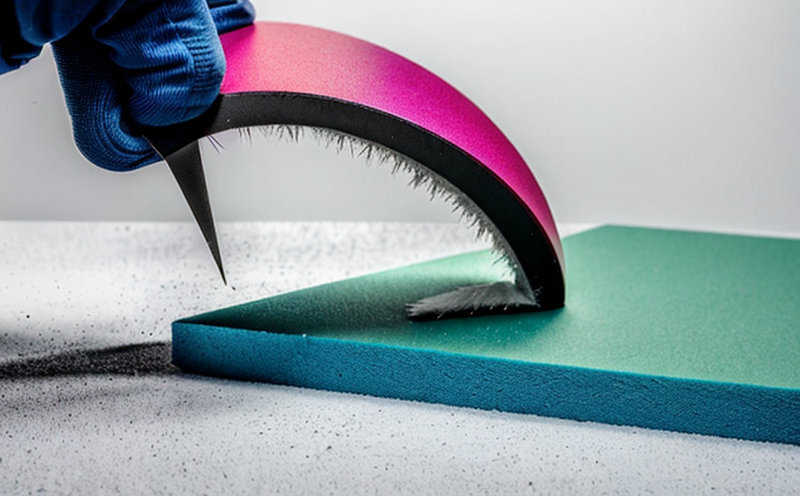Testing the ability of materials to adhere to surfaces without detaching or peeling
The Crucial Role of Adhesion Testing Ensuring Your Products Stick
In the world of materials science, adhesion is a critical property that can make or break the success of a product. Its the ability of a material to stick to another surface without detaching or peeling off. This seemingly simple concept has far-reaching implications for industries such as packaging, construction, automotive, and more. A material with excellent adhesion properties ensures seamless performance, durability, and safety.
At Eurolab, we understand the significance of adhesion testing in the development and production process. Our state-of-the-art laboratory provides comprehensive adhesion testing services to help businesses like yours ensure that their materials adhere flawlessly to surfaces. In this article, well delve into the importance of adhesion testing, its benefits, and how Eurolabs expertise can support your product development needs.
What is Adhesion Testing?
Adhesion testing involves evaluating the bond strength between a material and a surface. This includes assessing various factors such as
Bond strength The force required to separate the material from the surface.
Peel adhesion The resistance of the material to peeling or delamination.
Tack The ability of the material to stick to a surface without leaving residue.
Why is Adhesion Testing Essential for Businesses?
Product Reliability and Durability
Ensures products perform consistently under various conditions.
Prevents premature failure, reducing maintenance costs and downtime.
Safety and Compliance
Adheres to regulatory standards for industries such as food packaging, medical devices, and construction materials.
Minimizes the risk of product recall due to adhesion-related issues.
Cost Savings
Reduces waste generation by identifying potential adhesion problems early on.
Saves resources by avoiding costly rework or reformulation.
Improved Customer Satisfaction
Ensures products meet customer expectations for performance and durability.
Builds trust through consistent quality, boosting brand reputation.
Advantages of Using Eurolabs Adhesion Testing Services
Our laboratory provides a range of adhesion testing methods to suit various materials and applications
Tape Test Evaluates the peel adhesion strength between two surfaces using a pressure-sensitive tape.
Dolly Test Measures the bond strength between a material and a surface under varying loads.
Scotch Tape Test Assesses the tack properties of materials using standard Scotch Brand tape.
Additional Benefits
Expertise Our team of experienced technicians and scientists ensures accurate, reliable results.
State-of-the-Art Equipment Utilizes advanced instrumentation for precise measurements.
Comprehensive Reporting Includes detailed analysis, recommendations, and certification for your records.
Flexible Scheduling Accommodates rush orders and tight deadlines.
Frequently Asked Questions (FAQs)
Q What types of materials can be tested?
A Our laboratory tests various materials, including polymers, adhesives, coatings, metals, and composites.
Q How long does the testing process take?
A Turnaround times vary depending on the test method and complexity. Well provide a custom timeline for your project.
Q What kind of certifications do you offer?
A Our reports are compliant with international standards (e.g., ISO 1496-1, ASTM D3330). Certificates can be issued upon request.
Q Can I get rush testing services?
A Yes. We prioritize urgent projects and provide expedited turnaround times when possible.
Conclusion
In todays competitive market, ensuring the adhesion properties of materials is crucial for product success. At Eurolab, we empower businesses to make informed decisions by providing comprehensive adhesion testing services. With our expertise, state-of-the-art equipment, and commitment to quality, you can trust that your products will stick every time.
Dont let adhesion issues compromise the performance and safety of your products. Contact us today to learn more about our laboratory services and how we can help you adhere to excellence.
-
Evaluating the bond strength of adhesives used in construction materials and coatings
-
Testing whether adhesives maintain their integrity under stress, temperature changes, or environmental conditions
-
Simulating real-world conditions to test the durability of adhesive bonds over time
-
Ensuring that bonding agents used in construction materials such as tiles, paint, or flooring are durable
-
Testing for resistance to forces like shear, tension, and compression that could break the adhesive bond
-
Verifying that adhesive materials can withstand moisture, heat, and other environmental conditions
-
Testing the adhesion of coatings to substrates such as concrete, wood, or metal to ensure durability
-
Simulating heavy load conditions to test how adhesives perform under pressure or weight
-
Ensuring that adhesives used in outdoor and exposed construction applications remain stable
-
Verifying the adhesion of materials used for insulation, membranes, and coatings to various surfaces
-
Testing the peel strength of adhesives used in construction to ensure that bonds do not fail prematurely
-
Simulating the impact of thermal cycling on the adhesion of building materials over time
-
Testing for resistance to chemical exposure that could weaken or break adhesive bonds
-
Ensuring that adhesives maintain their performance under harsh conditions, such as high humidity or freezing temperatures
-
Verifying that adhesives used in joints and seams do not weaken or detach during building settlement or movement
-
Testing the adhesion of materials in construction panels to ensure stability over time
-
Ensuring that adhesives provide a consistent and strong bond without creating voids or bubbles
-
Simulating mechanical stress and vibration to evaluate how adhesives perform in dynamic environments
-
Verifying that adhesives do not cause material degradation or compromise structural integrity over time
-
Ensuring that adhesives used for floor and wall coverings provide secure bonding without excessive wear
-
Testing for any potential failure points in adhesive joints that could cause materials to separate over time
-
Ensuring that adhesives maintain their performance even after long exposure to weather or UV rays




